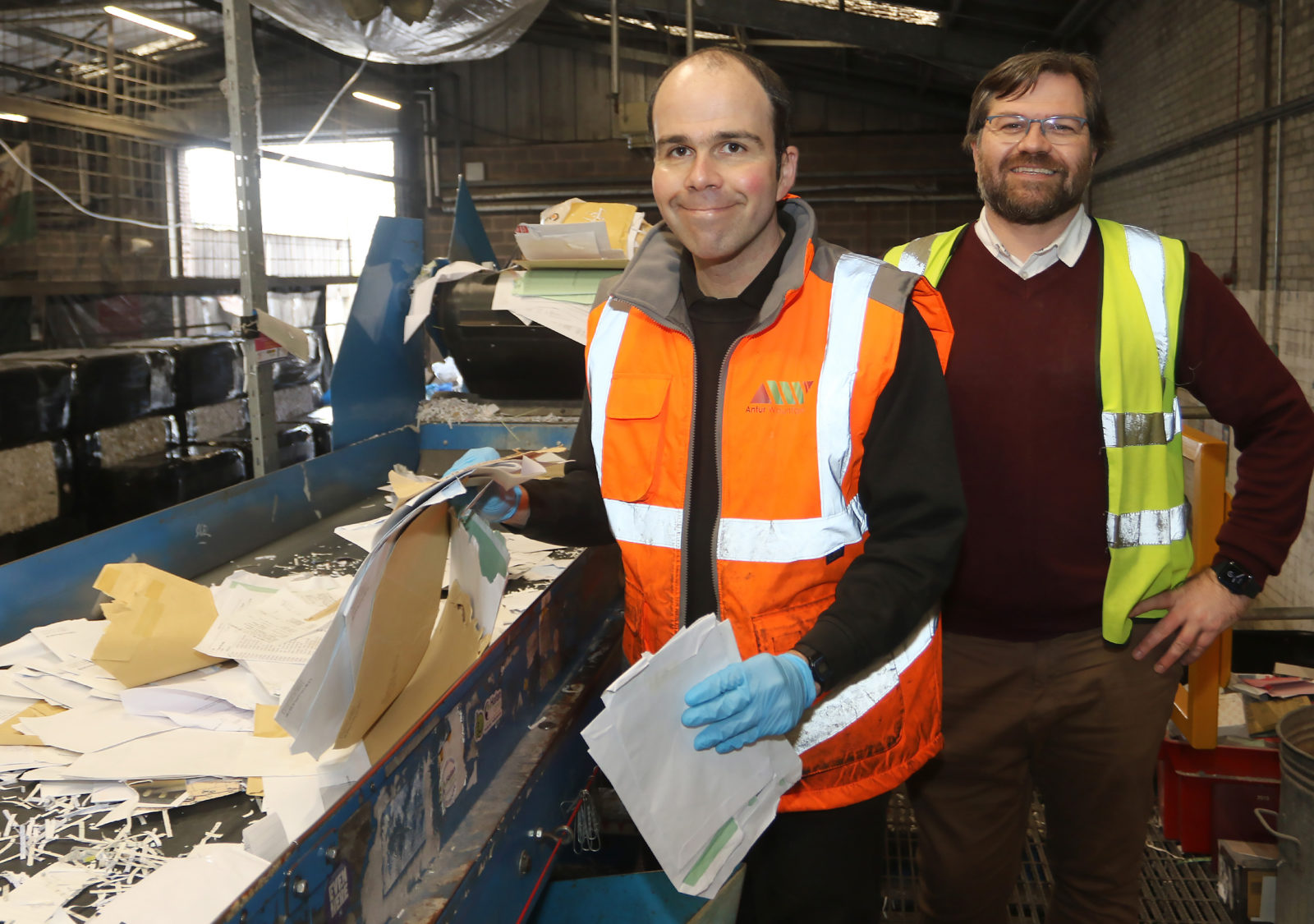A leading North Wales social enterprise that provides jobs and training opportunities for people with learning disabilities in their own community is being hailed for supporting a bilingual workplace.
Antur Waunfawr, based in Waunfawr and Caernarfon, employs 120 staff and supports 64 adults with learning difficulties, whilst also providing valuable reuse, recycling and health and wellbeing services to the communities it serves.
The social enterprise aims to create an innovative, equal, productive and low carbon society by nurturing a family of sustainable local businesses to support resilient communities and wellbeing for all.
Antur Waunfawr’s businesses recycle waste, provide a confidential paper shredding service, repairs and recycles furniture, reuses and recycles textiles and hires and repairs bicycles as part of a health and wellbeing centre. The company has customers across the whole of North Wales.
All of the staff speak Welsh and seven are currently working towards apprenticeships, delivered by pan-Wales training provider Cambrian Training Company and Progression Training.
One employee is completing an Apprenticeship Level 3 in Business Administration, which is being delivered totally in Welsh. Two employees are seeking a Foundation Apprenticeship in Sustainable Recycling Levels 2 and 3 through WAMITAB and four are working towards City & Guilds Apprenticeships in Health and Social Care Levels 2 and 3 bilingually.
Antur Waunfawr is being highlighted by Coleg Cymraeg Cenedlaethol and the National Training Federation of Wales (NTfW) as a champion of bilingualism in the workplace.
Coleg Cymraeg Cenedlaethol leads the development of Welsh medium and bilingual education and training in the post-compulsory sector in Wales whilst the NTfW represents work-based learning providers across Wales.
“Welsh language is part of our identity as a company and we are proud to be a place of work where the language can be used naturally,” said Antur Waunfawr’s senior manager Haydn Jones. “Most of our service users are first language Welsh speakers.
“Our goal is to ensure that when young people have finished their education, they can continue to use the Welsh language in our workplace daily. They don’t have to be fluent in the language, they can use basic Welsh. We need to embrace and encourage Welsh learners.
“It would be great if there were more workplaces where the Welsh language can be used.”
Speaking about the value of bilingual apprenticeships, he said: “They are a vital component of our company. It is a way of nurturing staff development and it gives them a level of competence in their particular field of work and the confidence to progress.
“The satisfaction I see when our staff achieve their apprenticeship is very rewarding.”
Amy Edwards, Cambrian Training Company’s head of sustainable resource management and energy, described Antur Waunfawr as a “fantastic company guided by its mission statement”.
“The services they deliver for the community and the way they go about it are brilliant. They are very supportive of training and upskilling their employees, 18 of whom have achieved apprenticeships with Cambrian Training over the past eight years.
“Part of the reason the company chose us as their training provider for waste management is because we have Welsh speaking training officers and assessors who can deliver the apprenticeships bilingually and support learners who have additional learning needs.”
Ryan Evans, the NTfW’s bilingual champion, said: “Many workplaces are becoming more bilingual, which can be very beneficial to employers, especially when providing services to Welsh speaking customers.
“Completing an apprenticeship bilingually or in Welsh can increase an individual’s confidence to work in both languages and their employability, whilst also being a great asset to their employer.
“Antur Waunfawr is an excellent role model for apprenticeships, highlighting the benefits of learning and working bilingually in the workplace.”
Dr Dafydd Trystan, from the Coleg Cymraeg Cenedlaethol, said: “Highlighting successful employers who are active in the apprenticeship sector is a vital tool in showing businesses and individuals that it is both possible and advantageous to support bilingual apprentices.
“With the Welsh Government’s target to reach one million Welsh speakers by 2050, it has never been more important for employers and their employees to develop their bilingual skills to increase their business and employability prospects respectively.”









Leave a Reply
View Comments